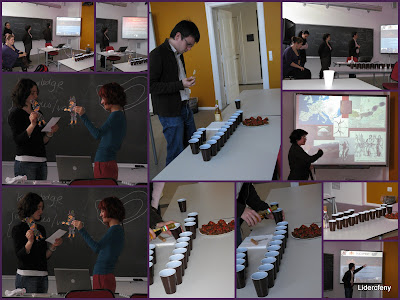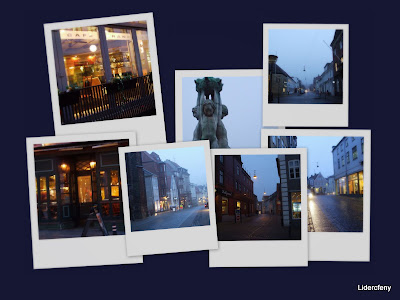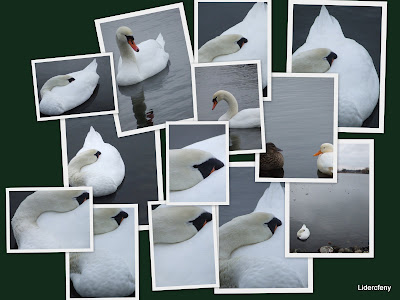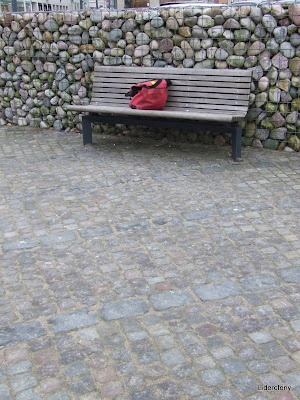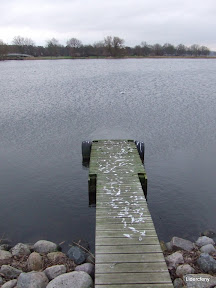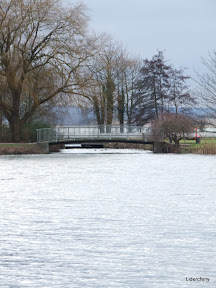We weeks ago we had Jette's storytellers lesson, where we saw some part of the Danish movie culture. I would like to show you my notes from that lesson, because they are mostly just the film titles: (It is also a note for me to dont forget to see Festen!)
1, communication
sender - message - receiver
text
<----------- feedback message: image which wanted to be created TurkeySpanish: Interview Czech: True or not 2, Film 'language' pictures sound(tracks) - music - real sound - effects point of view of cameras (POV) distance, closeness, panorama, movements of camera, etc. cutting light props - locations colors Danish movies - back to 'unplugged' movies. - Storytellers trought Danish movies 1906 - Film company in Denmark - almost the first - Nordisk Film - Polar Bear sign of this - silent movies they were quite progressive, showing things between the scences, the board shows the speech During the german occupation - criticsm to germans, after that they picked out the films from cinemas Till 1950s black and white films 1950s - "art tradition" movies - Drama/Novel turning into a film light entertainment + music (Morten Korch - special Danish tradition - "western" movies of danish people) Famous filmmaker: Th Dreyer - superrealistic films, with camera, and in the same time heavy, serious messages He needed for it so good actors (even from abroad) (Film) The World - 1944 - Famous - connected to one of the Danish national hero, martyr, or something like that story about a man, who thinks he is the resurrected Jesus pure nature, heavy thinking realistic static, but very simbolic later they got realistic more 1970s most of the Danish movies are comedys 1900 - 1970 -dominant genre: comedy - popular comedy period (Film) Olsenbanden - ser ro/dt - Decay of the big pricess - 1980s Karen Blixen - Isak Dineson - My African Farm - Out of Africa (Film) Seven gothic tales Babette's feast (Film) Life - Kenya, Sifilis Martin Andersen Nexo - famous writer, political books, socialistic a little bit Pelle, the conqueror - oscar winning (?) - 1980s (Bille August - The house of spirits, Goodbye Bafana (?)) (Film) Peter Ho/eg = Miss Smillas sense of snow, almost thriller 1975 - some directors decided that they wants to do something different - so they created DOGME 95, (signed document 1995) kind of unplugged movies no studio work, on location national light, national sound, props music only when music played on the set it has to be on color, but without extra light, special light handheld camera here and now, present time they can repeat the shooting, but they are trying to get it as long as it possible it is kind of protesting, first looks boring, but then you learn to understand it (Film) Festen - The Celebration (Ünnep, Pesti színház, otthon) (Film) Europa - Lars Von Trier (Film) Breaking of the waves (Film) Dancer in the dark (Film) Dogville - opposite of Dogme 95 (Film) Italian for begginers (Film) Portland (Film) Angels in fast motion - Nortkraft (Film) Flashing lights (Film) The bench (Film) The herritage (Film) The art of crying together (Film) Terribly happy (Film) The son of the happy birthday-cardwriter Finally 1980 1990 - back to basics, DOGME, realistic, psychological dramas actionfilms comedys mixtures 2000 - PerFly Trilogy Erling Jepsen - Terribly happy
sender - message - receiver
text
<----------- feedback message: image which wanted to be created TurkeySpanish: Interview Czech: True or not 2, Film 'language' pictures sound(tracks) - music - real sound - effects point of view of cameras (POV) distance, closeness, panorama, movements of camera, etc. cutting light props - locations colors Danish movies - back to 'unplugged' movies. - Storytellers trought Danish movies 1906 - Film company in Denmark - almost the first - Nordisk Film - Polar Bear sign of this - silent movies they were quite progressive, showing things between the scences, the board shows the speech During the german occupation - criticsm to germans, after that they picked out the films from cinemas Till 1950s black and white films 1950s - "art tradition" movies - Drama/Novel turning into a film light entertainment + music (Morten Korch - special Danish tradition - "western" movies of danish people) Famous filmmaker: Th Dreyer - superrealistic films, with camera, and in the same time heavy, serious messages He needed for it so good actors (even from abroad) (Film) The World - 1944 - Famous - connected to one of the Danish national hero, martyr, or something like that story about a man, who thinks he is the resurrected Jesus pure nature, heavy thinking realistic static, but very simbolic later they got realistic more 1970s most of the Danish movies are comedys 1900 - 1970 -dominant genre: comedy - popular comedy period (Film) Olsenbanden - ser ro/dt - Decay of the big pricess - 1980s Karen Blixen - Isak Dineson - My African Farm - Out of Africa (Film) Seven gothic tales Babette's feast (Film) Life - Kenya, Sifilis Martin Andersen Nexo - famous writer, political books, socialistic a little bit Pelle, the conqueror - oscar winning (?) - 1980s (Bille August - The house of spirits, Goodbye Bafana (?)) (Film) Peter Ho/eg = Miss Smillas sense of snow, almost thriller 1975 - some directors decided that they wants to do something different - so they created DOGME 95, (signed document 1995) kind of unplugged movies no studio work, on location national light, national sound, props music only when music played on the set it has to be on color, but without extra light, special light handheld camera here and now, present time they can repeat the shooting, but they are trying to get it as long as it possible it is kind of protesting, first looks boring, but then you learn to understand it (Film) Festen - The Celebration (Ünnep, Pesti színház, otthon) (Film) Europa - Lars Von Trier (Film) Breaking of the waves (Film) Dancer in the dark (Film) Dogville - opposite of Dogme 95 (Film) Italian for begginers (Film) Portland (Film) Angels in fast motion - Nortkraft (Film) Flashing lights (Film) The bench (Film) The herritage (Film) The art of crying together (Film) Terribly happy (Film) The son of the happy birthday-cardwriter Finally 1980 1990 - back to basics, DOGME, realistic, psychological dramas actionfilms comedys mixtures 2000 - PerFly Trilogy Erling Jepsen - Terribly happy
The thing why I waited with posting it is because I wanted to compare it (by mentioning together) with the Globalization and Citizenship lessons.
On the first lessons of Globalization we mostly spoke about actual political cases, Durben I and II, Obama's speech, keywords searching, key words for teaching democracy.
On the another lessons of Globalizations we saw movie parts, and clips, and this is why I want this two subject together. They are quite different because on the globalization lesson we were speak about keywords, and globalization and citizenship by films.
But I have a question to my readers/Erasmus mates:
How Danish films speaking about this? For example Festen? I am sure it speaks a lot, but from a very different view.
On the first lessons of Globalization we mostly spoke about actual political cases, Durben I and II, Obama's speech, keywords searching, key words for teaching democracy.
On the another lessons of Globalizations we saw movie parts, and clips, and this is why I want this two subject together. They are quite different because on the globalization lesson we were speak about keywords, and globalization and citizenship by films.
But I have a question to my readers/Erasmus mates:
How Danish films speaking about this? For example Festen? I am sure it speaks a lot, but from a very different view.


